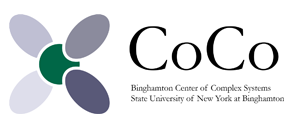Abstract
Education is traditionally structured as a closed system, privileging result-driven methods that offer control and predictability. In recent decades this reductionist approach has been effectively challenged by interdisciplinary work in complex systems theory, revealing myriad levels of orderly disorder that make either-or, linear instruction an inadequate norm. Narrowing the broad implications of a complexity lens on education, this paper focuses on generative uncertainty in teaching-learning, a paradoxical state of epistemological and creative growth described by English poet John Keats as "the negative capability of being in uncertainties, mysteries, doubts." Opportunities to advance this potentiating capacity are especially abundant in constructivist curricula, for example the Methods of Inquiry (MoI) program discussed herein. MoI's open, complexity-based approach foregrounds uncertainty-tolerance and other interactive dispositions, providing a fluid structure for the emergent, often turbulent nature of meaning production. Such dynamic attitudes and strategies are seen as essential for any classroom practice that seeks to transform as well as inform, to guide and also empower.
Recommended Citation
Rosen, Diane
(2019)
"Being in Uncertainties: An Inquiry-based Model Leveraging Complexity in Teaching-Learning,"
Northeast Journal of Complex Systems (NEJCS): Vol. 1
:
No.
1
, Article 5.
DOI: https://doi.org/10.22191/nejcs/vol1/iss1/5
Available at:
https://orb.binghamton.edu/nejcs/vol1/iss1/5
Included in
Non-linear Dynamics Commons, Numerical Analysis and Computation Commons, Organizational Behavior and Theory Commons, Systems and Communications Commons

